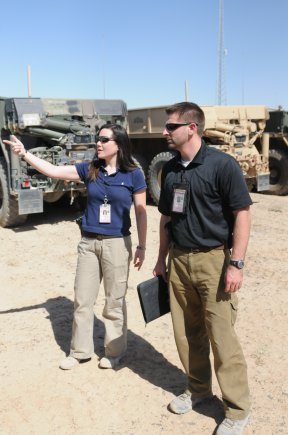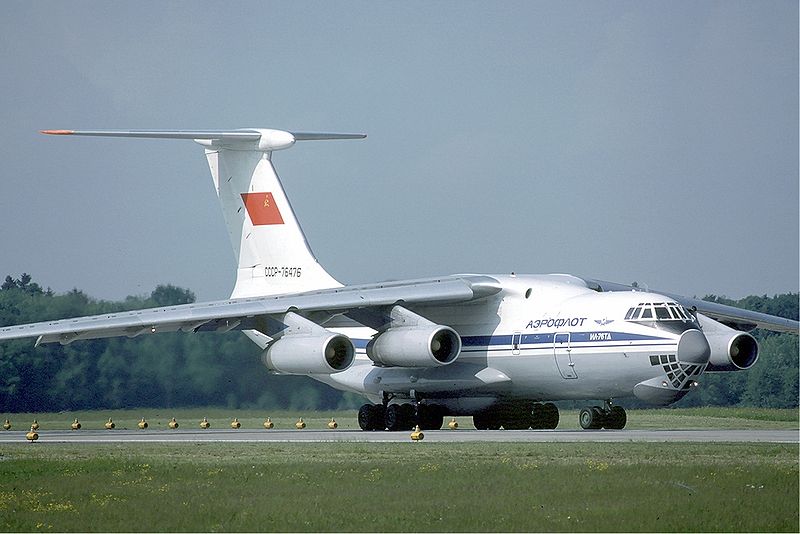As billions of dollars flow into the Afghan economy to assist its people, some remain skeptical that this effort will affect change in such a chaotic environment. At the front of some lawmakers’ concerns is the opportunity for misuse of these funds. To combat corruption within the contracting process America’s federal law enforcement communities established the International Contract and Corruption Task Force — Afghanistan.
Significantly invested in the war in Afghanistan, the United States Army enlisted the help of the Criminal Investigation Command’s, commonly referred to as CID’s, Major Procurement Fraud Unit, a diversified organization, well versed in the investigation of fraud and corruption cases, to help the International Contract and Corruption Task Force — Afghanistan, or ICCTF-A, accomplish this herculean assignment.
“The contracting world is cutthroat, so when you run into a problem here it becomes a major roadblock” said Special Agent Joe Martonosi, an Major Procurement Fraud Unit, or MPFU, agent assigned to the task force. “So for those agencies that are unaccustomed to dealing with the military, what may be a simple problem can become overwhelming.”
Major Procurement Fraud Unit special agents bring to the fight a wealth of experience in forensic accounting, law and logistics — affording them a tactical advantage and suiting them for the expeditionary military environment. Forward field commanders often rely on their expertise and request assistance from CID special agents on how to identify and overcome corruption during the contracting process. Throughout the past decade, MPFU’s recoveries total more than $1.6 billion, with more than $411 million returned directly to the Army.
“This is our environment so we know where to go, who to go to, and what to do when a problem comes up,” added Martonosi. “And it always does.”
Martonosi explained that there are more than 650 different contracting companies operating within the Regional Command South’s area of operations. The bulk of those contracts are being executed on the Kandahar Airfield military complex and throughout the surrounding areas.
“More than 50 percent of the contracts are awarded to Afghan companies, but at least 90 percent of all the contracts awarded will touch an Afghan company at some time during the execution,” he said. “Everything from construction projects, to waste disposal, to physical security contracts are being executed by companies that once awarded the project, sub-contract out to Third Country Nationals or local residents who often have little to no experience in what the contract requires. This is where we start to run into trouble,” he added.
Unlike conventional free market economies, in conflict ridden parts of the globe the opportunity to defraud is ever present, often resulting in undue hardship for those at the end of the supply chain. With every contract that goes bad, both the United States and those who defend it pay the price.
“For a company to be awarded a contract, they usually have to have the lowest bid that is technically acceptable,” said Special Agent Jennifer O’Connor, an MPFU agent with the Kandahar CID office. “Also, the International Security Assistance Force is trying to get the contracts awarded to Afghan nationals, which can make it challenging when trying to go after someone who is defrauding the U.S. Government.”
“Depending on the complexity and size of a contract, getting to the person or persons ultimately responsible can be very time consuming, but we’re very patient,” she said, as most fraud investigation in theater can take up to 18 months to complete.
With an unstable local government and a national justice system in its infancy, great strides have still been made in the successful prosecution of corrupt Afghan companies that would attempt to defraud the government.
“Although the Afghan CID and justice department have had their own challenges, we’ve been able to get some cases into the hands of local prosecutors and have had those companies revoked from ever doing work with the military,” O’Conner said. “Several cases in Kabul have been investigated and successfully prosecuted so the message is getting out there. If you break the law, it’s not a matter of if you get caught, it’s when you get caught,” she added.
One challenge has been keeping tabs on those corrupt companies from trying to sneak back into the contracting process and bid on new projects.
Martonosi explained that when an Afghan company is found guilty of fraud or corruption, that company is then banned from the installation and removed from the list of eligible contractors. Just like criminals that are found guilty of committing a crime, their information is uploaded into the local law enforcement database that’s used to screen potential companies of previous issues.
The challenge then becomes ensuring those corrupt companies don’t reorganize in an effort to get involved again.
“A lot of companies will try to change their names, business information and so on, in an effort to get a crack at the millions of dollars being spent on contracts,” he said. “The down side of kicking a company off a contract, especially if it involves lots of people, is now they have no way of supporting their families and some have headed for the welcoming arms of the Taliban.”
Another major challenge for the CID special agents, aside from its investigation and oversight role, has been assisting members of the Afghan government.
“Building off of the last MPFU rotation, we have been spending a lot of time working with the Afghan National Police and the local government officials helping them understand the importance of fighting corruption in their country,” O’Conner said. “Now that they are becoming more and more involved with our investigations they’re starting to see that those companies that are defrauding the U.S. Government are not only hurting them but hurting their families, friends and neighbors.”
Reinforcements from the Defense Contracting Agency and Defense Logistics Agency in the way of technical experts in contract management, contracting officers and inspector general personnel are making their way into theater to help mitigate those cases that are referred for felony investigation.
Early on in the conflict, third-country nationals and local-national contractors had little to no recourse concerning making complaints or reporting wrong doings. If an employee discovered any impropriety, their only avenue for help would be the ISAF/NATO forces which depending on the offense may or may not have the authority or jurisdiction to help.
With the addition of qualified contracting officers and contracting officer representatives, issues such as price gouging and artificial inflation can be addressed.
“The more folks that have eyes on a contract as it’s performed and the better it’s managed will also help as a deterrent,” Martonosi said. “As with each rotation things get better, but there is still a lot that needs to be done.”
For more information on Army Criminal Investigation Command visit www.cid.army.mil











